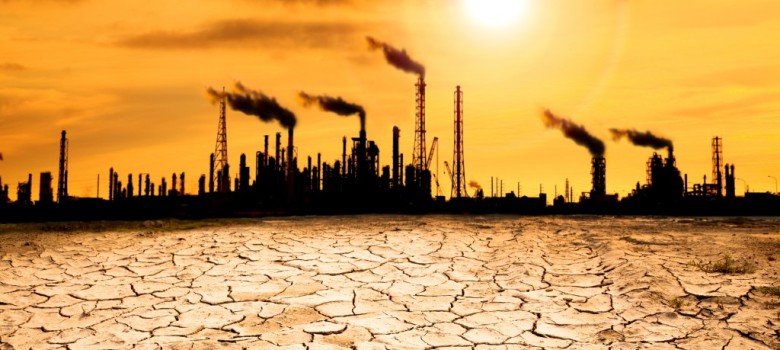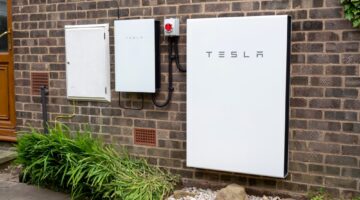
What is Fracking?
I came across the term Fracking only fairly recently, in someone’s tweet on Twitter. I had no idea what it meant at the time, but have since learnt that the US are lapping it up, with the UK expected to follow sharpish.
So what is it? And should the Brits be quite so quick to follow yet another trend from across the pond?
Fracking is short for Hydraulic Fracturing, and is the term used to describe the extraction of gas from shale rock formations. The richest shale deposits tend to be at a depth of 1.5 – 6km underground and at these depths, the high pressure reduces the number of naturally occurring fractures.
These are the beds targeted by fracking; bore holes are drilled vertically down to reach the shale beds (which tend to be less than 100m thick), and then the bore holes turn 900, aligned horizontally along the length of the shale bed, which can go on for kilometres.
Once the bore hole has been drilled, very high pressure water is then forced down into the shale rock which causes lots of miniature explosions, cracking the shale and releasing the gas trapped inside the bed. To prevent the cracks settling back down, sand is then pumped down which props up these artificial fractures.
What are the (potential) problems with Fracking?
Well, while I mentioned that it was water that was fired down the bore hole, that does make the vast majority (98.5% of the fracking fluid), but other chemicals are also sent down such as lubricants and anti corrosion chemicals. When the sand is fired down to act as the propping agent, chemicals are needed to ensure that the sand finds its ways into all the fractures, and this process is fulfilled by lubricants and suspension agents. In addition anti corrosion chemicals are also sent down to stop the bore hole pipes corroding.
This in itself wouldn’t be an issue if 100% the fracking fluid was collected, however there have been some suggestions that this fracking liquid finds its way into water that we eventually drink, which obviously wouldn’t be ideal. Even on a simpler level, if the water were to find its way into the oceans and sea it could be detrimental to the local environment, causing adverse affects on wildlife.
There are also dramatic reports (I have no scientific proof to shape my view on this) of water coming out of the tap with a high volume methane, so if you were to have a open flame in the vicinity, the gas would burst into flames, giving the appearance of burning water.
In the UK, during April and May 2011, two small earthquakes hit the Blackpool area (these were literally tiny – 1.5 & 2.2 magnitude) which were confirmed to be the direct result of fracking activity in theUK. Now anything less than 2 on the Richter scale is described as a Micro earthquake, and therefore not felt. It appears though that Blackpool residents are light sleepers as 10 people called the police station regarding the earthquake when the felt the ‘tremors’ in the very early hours.
I guess for me, it is the last potential issue with fracking that causes me the biggest problem. Fracking produces natural gas, which despite being the cleanest of the fossil fuel family, when burnt produces CO2 and other greenhouse gases. Relying on natural gas is essentially taking a backward step in trying to cut emissions, and make our society greener.
In the USA recently, fracking has led to an abundance of cheap fossil fuel gas and this has made Renewables battling to make headway amongst more established fossil fuel competitors more uneconomical and unattractive as investment potential.
Also on a slight aside, a further factor making fracking such a popular activity in the USA is that unlike the UK, where any gas found on your property belongs to the crown, any reserves found on properties in the USA belongs to the property owner, potentially creating overnight millionaires.
Barack Obama, in his state to union address said ‘the development of natural gas will create jobs and power trucks and factories that are cleaner and cheaper, proving that we don’t have to choose between our environment and our economy.’ Well Mr Obama, I disagree. It is another sticky plaster that may help us through the next 50 years or so. Agreed that it might not matter to you or I, but surely that is pretty selfish with regard to future generations.
So coming back to the UK, where the practise of fracking is still in its infancy, a report came out on 16th April 2012, highlighting the promise of fracking to bridge our electricity generating needs to the Government, and with very large deposits thought to exist under Wales, it surely is a matter of time until sadly this becomes common practise in the UK too.
What do you think? Do you think we should focus on fracking to power the UK?
For more insight into fracking – visit https://www.dangersoffracking.com/












This sounds like a fracking ridiculous way to continue to exhaust the planets supply of resources. Thansk for letting me know about this.
James,
I couldn’t agree more.
This glut of N.Am. frackin’ Gas is simply unsustainable. At only ~2 US-bucks per GJ, F-Gas producers on my continent *cannot* afford to keep fracking for it in order to grab the accompanying Oil at historically-low NG prices!
We Westerns must guard our NG Methane for making Methanol and Hydrocarbon chemicals for solvents, paints, plastics and composities. The process of condensing the methane to HC liquids & the like will liberate on-demand Hydrogen gas. With low-cost byproduct H2, North Americans will be able to upgrade plentiful but Foul Fossils like Oil Sands & Coal.
The key to hydro-cracking the thick oil-sand Bitumen is Molten-salt Science.
Ms. Sci is fully capable of transforming bitchy bitumen into non-flammable HC fluids fit for Diesel and darn close to Jet-Fuel Quality, all for only pennies per pound!
Thanks for your comment Kim,
I agree that the NG methane would be better used elsewhere, and I am familiar with Molten Salt Science in conjunction with driving Thorium Nuclear energy, as a safer, more effective way than existing nuclear energy sources.
How do you suggest we drive the uptake of molten salt tech to bring in economies of scale and standard operating procedures across the board to actually make it a feasible proposition?